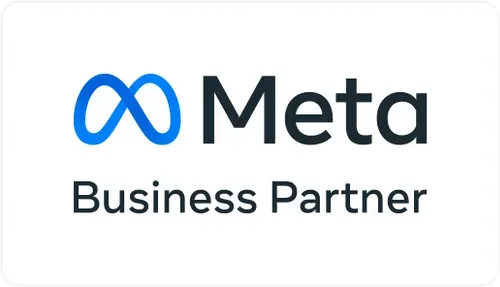Creating Inclusive Workspaces: Accommodating Employees During Ramadan
- Mar 11, 2024
In the modern workplace, diversity and inclusivity are fundamental pillars for fostering a productive and harmonious environment. As organizations strive to accommodate employees from various cultural and religious backgrounds, it becomes imperative to address the needs of individuals observing significant religious events, such as Ramadan. Ramadan, the holiest month in Islam, presents unique challenges and considerations for both employers and employees. By creating inclusive workspaces and understanding the significance of Ramadan, organizations can demonstrate respect for diversity and support the well-being of their employees.
Understanding Ramadan:
Ramadan is a month-long period of fasting observed by Muslims worldwide. It commemorates the first revelation of the Quran to Prophet Muhammad and is characterized by fasting from dawn until sunset, abstaining from food, drink, smoking, and other physical needs during daylight hours. The fasting is not only a physical practice but also a spiritual one, emphasizing self-discipline, reflection, and empathy towards those less fortunate.
Challenges Faced by Employees During Ramadan:
For Muslim employees, observing Ramadan while maintaining work responsibilities can be demanding, especially in environments where there is little awareness or accommodation. Some of the challenges faced by employees during Ramadan include:
1. Hunger and Thirst: Fasting from dawn to sunset can lead to hunger, thirst, and fatigue, affecting concentration and productivity levels during working hours.
2. Schedule Adjustments: The altered eating and sleeping schedules during Ramadan may require adjustments to work hours or breaks to accommodate employees’ religious obligations.
3. Energy Levels: With limited energy reserves, employees may experience decreased energy levels, impacting their ability to perform tasks effectively.
4. Social Pressures: Employees may face social pressures related to participating in work-related events or gatherings that involve food or drink, which conflicts with their fasting obligations.
Creating Inclusive Workspaces:
To support employees during Ramadan and foster inclusivity in the workplace, organizations can implement the following strategies:
Raise Awareness: Educate all employees about the significance of Ramadan and the challenges faced by fasting individuals. Encourage an inclusive culture where differences are respected and celebrated.
Flexible Working Arrangements: Offer flexible working hours or telecommuting options to accommodate employees’ altered schedules and energy levels during Ramadan. Allow employees to adjust their work hours to better align with their fasting and prayer times.
Respectful Communication: Encourage open dialogue between managers and employees regarding Ramadan-related needs and concerns. Managers should be approachable and receptive to accommodating individual needs.
Schedule Considerations: Avoid scheduling important meetings, events, or business lunches during fasting hours whenever possible. If unavoidable, be mindful and considerate of fasting employees’ participation.
Break and Prayer Spaces: Designate quiet spaces for employees to rest, pray, or take short breaks during the workday. Ensure these spaces are clean, comfortable, and accessible to all employees.
Foster Inclusivity: Organize inclusive activities or initiatives during Ramadan that promote understanding, empathy, and solidarity among employees of different faiths and backgrounds.
Respect Privacy: Maintain confidentiality and respect employees’ privacy regarding their religious practices. Avoid making assumptions or inquiries about an individual’s fasting or religious observance unless they choose to share this information voluntarily.
Creating inclusive workspaces requires proactive efforts to accommodate the diverse needs of employees, including those observing religious practices such as Ramadan. By fostering awareness, flexibility, and respect for individual beliefs, organizations can create environments where all employees feel valued, supported, and empowered to perform their best.
At Evolve Digitas, we understand the importance of diversity and inclusivity in the workplace. We believe that embracing the unique perspectives and experiences of our employees enriches our culture and drives innovation. Our commitment to inclusivity is reflected in our policies, practices, and organizational culture.
We prioritize open communication, mutual respect, and understanding among our team members. Through ongoing education and awareness initiatives, we strive to foster an environment where differences are celebrated and individuals feel empowered to bring their authentic selves to work. We offer flexible working arrangements, provide accommodations for religious observances, and promote a culture of empathy and support.
By embracing diversity and inclusivity, we not only create a more vibrant and dynamic workplace but also strengthen our ability to serve our clients and communities effectively. At Evolve Digitas, inclusivity is not just a goal—it’s a fundamental part of who we are and how we operate.
As we continue to evolve and grow, we remain committed to building a workplace where everyone feels valued, respected, and empowered to thrive. Together, we can create a brighter and more inclusive future for all.
Popular Posts
-
 Future-Proofing Talent: Skills Digital Agencies Will Need Tomorrow25 Apr 2024
Future-Proofing Talent: Skills Digital Agencies Will Need Tomorrow25 Apr 2024 -
 The Future of Leadership in Digital Agencies – Adapting to Changing Dynamics19 Apr 2024
The Future of Leadership in Digital Agencies – Adapting to Changing Dynamics19 Apr 2024 -
 Navigating UAE's Digital Frontier: A Pro's Guide to Success18 Apr 2024
Navigating UAE's Digital Frontier: A Pro's Guide to Success18 Apr 2024 -
 Eid Influencer Collaboration Dos and Don'ts: Maximizing Impact and Authenticity04 Apr 2024
Eid Influencer Collaboration Dos and Don'ts: Maximizing Impact and Authenticity04 Apr 2024






